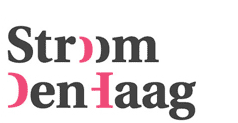OpZicht: Manuel Beltrán
Institute of Human Obsolescence
31 May - 17 July 2017
Location: Hogewal 1-9, The Hague
Open: Monday - Friday, 11-5 pm; Saturday - Sunday, 12-5 pm
Visit the 3 working sessions on 17 June, 4 July and 15 July (for info scroll down)
OpZicht is a presentation space in the lobby of Stroom Den Haag for newly
registered artists from The Hague. The wall unit functions as a stand or
platform where the artist can share his or her work, passion or
interest with the audience. Each presentation runs for approximately 7 weeks.
Archive OpZicht presentations 2013-present
Manuel Beltrán is an artist and activist. He researches and lectures on contemporary art, activism, social movements, post-digital culture and new media. As an activist, he was involved in the Indignados movement in Spain, the Gezi Park protests in Turkey and several forms of independent activism and cyber-activism in Europe and beyond. In 2012 he co-founded the art collective Plastic Crowds, since 2013 he is head and co-founder of the nomadic school and artistic organization Alternative Learning Tank and in 2015 he founded the Institute of Human Obsolescence.
The OpZicht space in the lobby of Stroom hosts an intervention of the Institute of Human Obsolescence and a series of 3 working sessions that are open to the audience. During these sessions, participants are invited to engage with a new installation and join the discussion with guest experts and collaborators from different fields related to the research of the Institute.
With guest Luis Rodil-Fernández, artist, hacker and educator. In this third session the Institute of Human Obsolescence will discuss forms of organization emerging from the production of data as a form of labor and how can we move forward pursuing our Data Labor Rights. How can we re-imagine the form of the workers union?
Also for members of We Are Public
Join Facebook event
During the second session, together with artist, economic activist and co-founder of timebank.cc Sara Pape, the Institute will present the workshop Follower, Observer, Maker. It will be addressing new forms of inequality emerging from the context of data-production labor, and introduce the proposal of the Data Basic Income as a tool to overcome some of those forms of inequality.
The first session deals with a general introduction to the Institute's work so far, followed by a new step into Economics of Big Data. With guest René Mahieu, researcher of economics and governance of privacy.
"We are being replaced by machines. What happened to horses after the invention of the steam engine, is now happening to us. Soon our manual labor will no longer be needed and with the advance of artificial intelligence, intellectual labor will be performed by machines as well. The Institute of Human Obsolescence explores this scenario and tries to ask questions on how to reposition the role of humans, particularly how to cope with a labor-market dominated by machines."
"After our first exploration extracting value from what we refer to as 'biological labor', we are starting a new research path towards understanding data-production as a form of labor. Human-generated data is a resource already extracted by companies like Google and Facebook, producing vast amounts of capital. Why aren't we, the data-workers, capitalizing from it? If even jobless workers are generating capital by producing data, would we accept the deal of exchanging it for a Data Basic Income?"
http://speculative.capital
PRESS
Art at Present blog, 24 July 2017
- 31 May '17 - 17 Jul '17
- Stroom Den Haag, Hogewal 1-9, The Hague
- Entrance: free
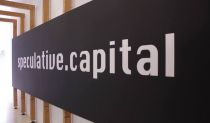
photo: Manuel Beltrán
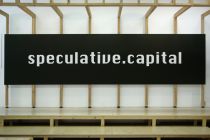
photo: Myung Feyen, courtesy Stroom Den Haag
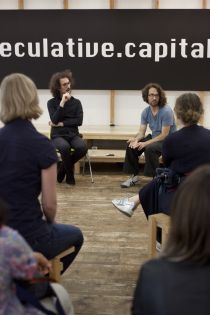
photo: Anna Kieblesz
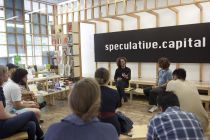
photo: Anna Kieblesz
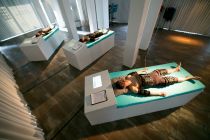
photo: courtesy the artist
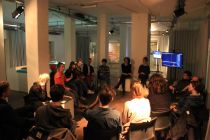
photo: courtesy the artist
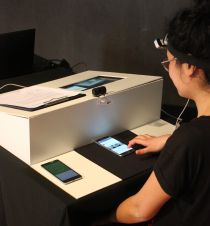
photo: courtesy the artist
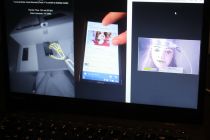
photo: courtesy the artist

















